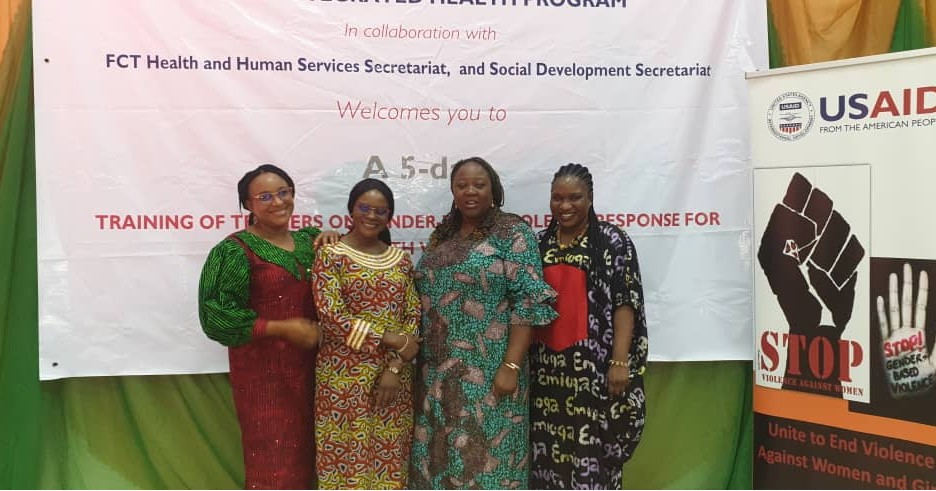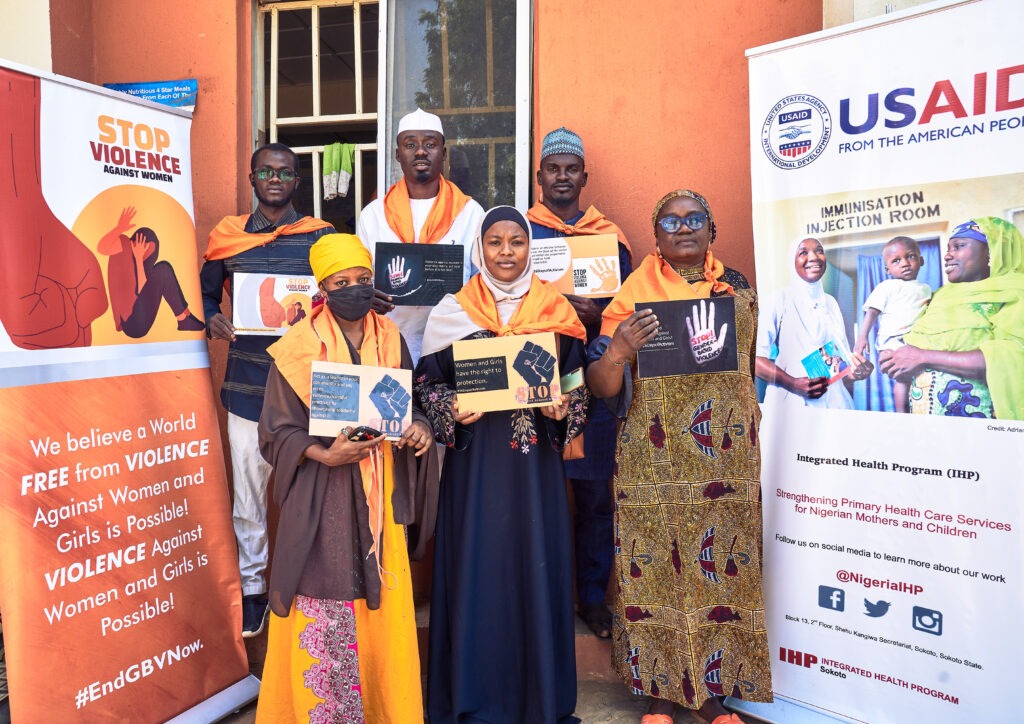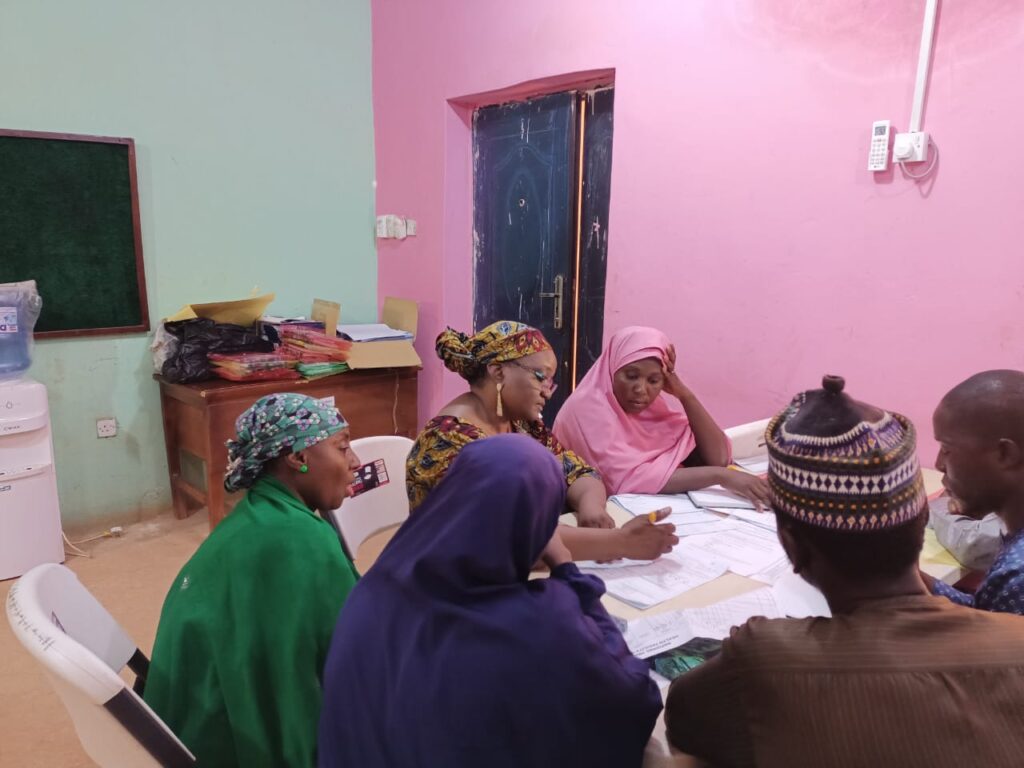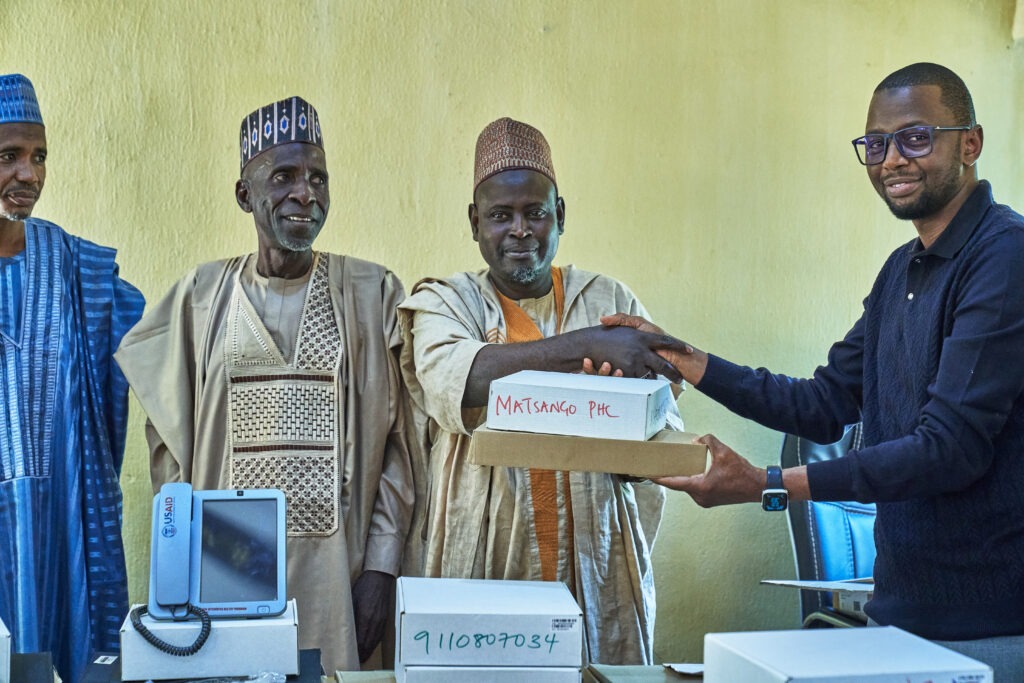WI-HER’s Leadership within the USAID Integrated Health Program (IHP) in Nigeria
USAID’s Integrated Health Program (IHP), led by The Palladium Group, worked to reduce maternal and child mortality and morbidity and increase health systems’ capacity to support quality primary health care (PHC) services within four participating states (Bauchi, Kebbi, Sokoto, and Ebonyi) and the Federal Capital Territory (FCT) by:
- Strengthening systems supporting PHC services
- Improving access to PHC services
- Increasing the quality of PHC services

To support these objectives, WI-HER’s Gender Equity and Social Inclusion (GESI) Advisors worked with multi-sectoral stakeholders at the national, state, and local levels, as well as Civil Society Organizations (CSOs) and other USAID implementing partners to develop and implement context-specific interventions with an aim to transform deeply rooted inequalities that shape health-seeking behaviors and impact the availability and quality of health services.
Our Approach
With the start of IHP in Nigeria in 2019, WI-HER conducted a GESI Desk Review and policy analysis, applying a GESI lens to review societal norms, cultural practices, and institutional structures that impact health. WI-HER GESI Advisors then facilitated stakeholder review and planning workshops in each state to validate findings, prioritize focus areas, and design locally-led interventions. Based on the gaps identified in the Desk Review, stakeholders across all states and at the national level prioritized key focus areas that included:
- Gender-based Violence (GBV) Response
- Values Clarification and Transformation
- Male Engagement in Health
WI-HER worked in partnership with governmental stakeholders, CSOs, and other USAID implementing partners to support locally designed and led interventions to address these focus areas.
GBV Response in Nigeria

GBV response was a major focus of WI-HER’s work within the four participating states and FCT. WI-HER provided technical assistance and support to stakeholders to inform efforts that:
- Created and strengthened effective GBV referral pathways in each state
- Strengthened and institutionalized state-level multisectoral GBV coordination mechanisms
- Trained healthcare providers to identify and respond to GBV
- Strengthened legal accountability for GBV
- Allocated funding to GBV via budget line items dedicated to GBV response
- Established a policy for healthcare workers to address sexual exploitation, abuse, and harassment in the workplace
Through collaboration with Federal and State Ministries of Health and local organizations via IHP’s Grants Under Contract (GUC) mechanism, WI-HER trained 179 master trainers in participating states and the FCT in survivor-centered and trauma-informed approaches for the identification, care, and referral for GBV survivors. GESI Advisors then supported master trainers to cascade the training to 2,879 healthcare workers. Through this and other initiatives, a total of 1,031 health facilities (both primary and secondary) are now providing evidence-based GBV case management and documenting GBV data, which informs state- and national-level activities and policies. As a result of IHP efforts between 2020 and 2024, 55,146 GBV cases were documented, 42,483 survivors received care, and 3,897 survivors were referred for further support.
The Importance of Values Clarification under USAID IHP

WI-HER’s Values Clarification and Transformation Sessions were paramount in developing a basis of understanding about GESI and GBV with relevant stakeholders, which paved the way for other activities, coordination, and sustainability. Topics for the Values Clarification and Transformation sessions included:
- GESI concepts orientation;
- The added value of incorporating GESI-specific indicators in data management in responding to GBV;
- Using gender-sensitive language;
- Adolescent and youth-friendly services;
- Barriers to men’s access to utilization of services;
- Inclusivity in the workplace;
- Women’s empowerment;
- GESI sensitive communication and workplace communication;
- Inclusive hiring, advancing, and management practices;
- Violence and harassment in the workplace;
- Violence and harassment that health providers can perpetrate and experience; and,
- Accountability in the workplace, among others.
Outcomes of these sessions included 1) Increased awareness and understanding of GESI issues as they relate to health systems and service delivery, and respectful and safe behaviors and communication in the workplace; and, 2) the development of a Code of Conduct on sexual exploitation, assault, and harassment drafted by and for health workers and approved by the State Ministries of Health as an addendum to the Human Resources for Health Policy of each State.
Male Engagement Activities under IHP

The GESI Desk Reviews highlighted a gap in healthcare service access for men and boys, as well as the need to engage males in family health. WI-HER thus supported activities designed to engage men as patients and advocates for their own health, as well as advocates for the health of their wives and children.
WI-HER supported and advised stakeholders to approach male engagement activities with the goal of tackling harmful socio-cultural norms around masculinity at the healthcare facility level, through training healthcare providers on how to engage with men as clients, and the importance of male allyship in their families’ access to healthcare.
We coordinated with USAID implementing partners to engage male champions at the community level to provide information on accessing healthcare services and the importance of their family’s access to healthcare (particularly around RMNCAH+N and immunization). A majority of WI-HER’s work with male engagement was at healthcare facilities, where GESI Advisors trained healthcare professionals on engaging men in routine services and during antenatal and postnatal visits. Additionally, WI-HER worked with facilities to design safe and more appealing spaces (e.g., waiting rooms, male friendly spaces, and private delivery areas so men can attend with their partners). Lastly, WI-HER worked with healthcare facilities to ensure that data on male engagement was collected and included in the national-level health data dashboard.
Building Capacity Among Stakeholders
Much of our work under IHP focused on building the capacity of national, state, and local government actors as well as CSOs and other stakeholders to address their specific challenges to gender equity and social inclusion in the healthcare system. This contributed to project sustainability by capacitating local stakeholders and passing on ownership of activities, so that impact may continue post-project closeout.